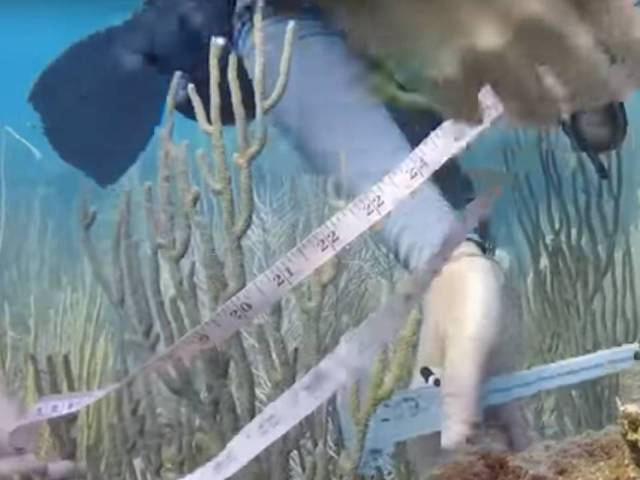2018: The year of Caribbean infrastructure

After the extreme weather events of 2017, it’s hardly surprising that infrastructure has figured at the top of the priorities of several Caribbean governments at the start of 2018. From the “Build Back Better” and climate-resilient aspirations following the hurricane season to a new approach to hospital care in Jamaica, this year promises to be a year of upheaval for the Caribbean way of doing things.
Caribbean Intelligence© rounds up some major changes in the pipeline:
- In its bid to become the world’s first climate-resilient nation following Hurricane Maria, Dominica has set up the Climate Resilience Execution Agency of Dominica (CREAD), which will work out a strategy and implement the country’s vision. CREAD will be backed by a trust fund and will be based in the office of Prime Minister Roosevelt Skerrit, who outlined his post-hurricane aims in late 2017. Senior civil servants seconded to CREAD met in late December to look at streamlining the country’s reconstruction work in line with its Climate Resilient Recovery Plan. Mr Skerrit told the CREAD team that there had been “exceptional buy-in” from the international donor community. He said: “It is important to have the support from you, because if we as a country fail in this attempt, we will not have another opportunity... It is about ensuring that, if we are visited by another storm, another hurricane, and the science is showing that these storms are becoming more ferocious and more frequent, then we will be able to bounce back quicker.”
- The Antigua and Barbuda parliament has passed a controversial bill scrapping a 200-year communal land rights system in Barbuda. The Barbuda Land (Amendment) Bill 2017 allows Barbudans to acquire individual ownership of land which had been communally held. The new freehold ownership will be restricted to people born in Barbuda and of Barbudan parentage. The bill faced opposition for being discriminatory to citizens of Antigua. Others argued that the changes to a system established in 1834 amounted a “land grab”. The ruling Antigua Labour Party argued that there was not enough time to include an option for Antiguans to buy and that the new legislation would give Barbuda a source of capital to repair the devastation caused by Hurricane Irma in 2017.
- The 2017 hurricane season did not only do damage on land. In November, US and Caribbean scientists measured the damage to coral reefs in the waters around the US Virgin Islands . Peter Edmunds , professor of biology at California State Northridge University, has studied the USVI waters for more than 30 years. He said: "In shallow waters, what we found certainly lived up to our expectations. Holy moly, this was bad news. But when we went deeper, it became more nuanced. It was still beautiful. There were corals, sea fans and some fish swimming around. Then you would look more closely and you would see tumbled corals and missing corals in spots where you had seen corals just three months before. There were changes, but there certainly was a tremendous amount still there. I think it's very encouraging."
The scientists put together a video of their November coral reef checks:
Howard Lasker, professor of geology in the University of Buffalo’s College of Arts and Sciences, said: "They [hurricanes] can cause extensive damage, but then the populations start to recover. It's analogous to forest fires: after a number of years, the forest starts returning. There's a period of disturbance and then the system recovers. These are magnificent ecosystems and we really know very little about how they change and recover after disasters."
- Back on land, Guyana and Brazil have finally signed a deal to build a road between their countries. The project has been talked about for years and its aim is to link together existing infrastructure on the route to create the Linden to Lethem Road. Guyana will be seeking donor funding to build road infrastructure to join up to a bridge already built by Brazil some time ago.
- Changing infrastructure is also on the mind of Jamaica’s Health Minister,Christopher Tufton. Opening a new hospital foundation in St Elizabeth, Dr Tufton endorsed the Black River Hospital’s plans for a private wing. He said that Jamaica needed to have a “frank discussion” on financing its health needs, including considering private wings in hospitals, while remaining committed to universal health care. “And so, we have said to institutions, 'If you can put together those private wings, as long as those private wings do not impede the regular function of the public health apparatus in terms of the universal access; better yet, if it enhances the provision of universal access; then that's what we really are about',” Dr Tufton said.
Related articles:
Build back better – Caribbean intelligence explores the task set by Caribbean nations
The Commonwealth and Climate Change – Baroness Patricia Scotland speaks with Caribbean intelligence about support for nations feeling the brunt of climate change.
Forensic ecology and assessing the damage to coral reefs by California State University Northridge.
Scientists get early look at hurricane damage to Caribbean coral reefs - Science Daily
CARICOM moving to create the World’s first Climate Resilient Region in the year ahead – Incoming Chairman, Haiti’s President Jovenel Moïse.
Why Caribbean nations need to support one another – Trinidad Newsday editorial




